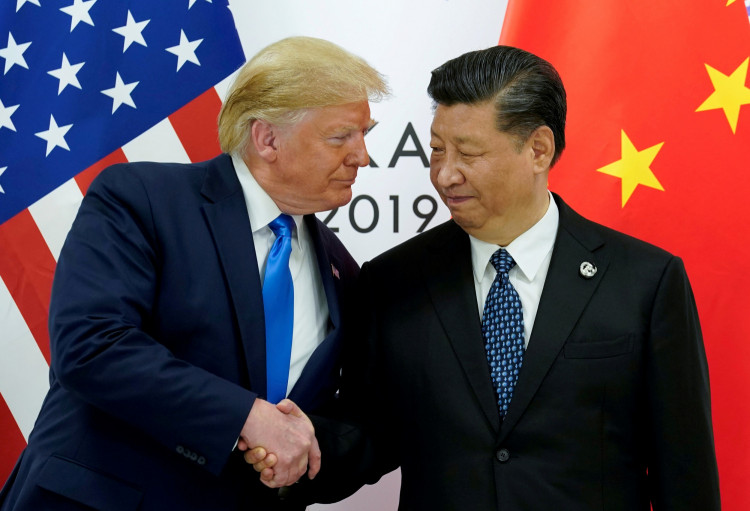The flagging hopes for a limited phase one interim trade deal between the U.S. and China, which weakened after both sides delayed the deal signing to December, received a shot in the arm Thursday with China saying both countries have agreed to simultaneously cancel some existing tariffs on each another's goods.
The Ministry of Commerce on Thursday revealed Beijing has agreed with Washington to lift existing trade tariffs between the two countries in phases. Both countries are now also closer to a limited phase one trade deal after constructive negotiations over the past two weeks, according to Gao Feng, a spokesperson for the commerce ministry.
On the other hand, China is insisting on one important condition for a limited trade agreement. Feng said this demand is the U.S. and China must remove the same amount of tariffs at the same time.
The news from China, which is bound to cheer Wall Street, comes on the heels of reports Wednesday the meeting between President Donald Trump and Chinese President Xi Jinping has been postponed to December from November following the ongoing riots in Chile where both leaders are to have met. Xi and Trump were to have signed the limited phase one agreement during the APEC summit in Santiago that was to have taken place from November 16 to 17.
Chile, however, is having second thoughts about abandoning its hosting of the APEC summit since it made this decision last week. On Thursday, news reports began circulating Chile is proposing holding the summit in Santiago and in the United States.
Media reports citing a senior U.S. official claim the U.S. and Chilean governments are now discussing co-hosting the APEC summit in the United States in January 2020. Malaysian Foreign Minister Saifuddin Abdullah said U.S. secretary of state Mike Pompeo had spoken to him in Bangkok and told him the U.S. was thinking of hosting the APEC summit in January.
"But I have informed the American officials who were in Bangkok that we don't think it's a good idea," said Abdullah.
Analysts, however, remain doubtful a phase one trade deal will effectively tackle the core U.S. demands. These include an end to China's forced technology transfers; an end to China subsidizing its state-owned enterprises and stronger intellectual property protection for Americans in China.





